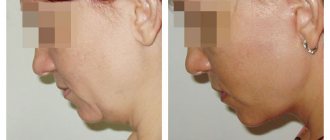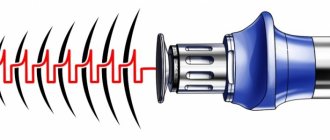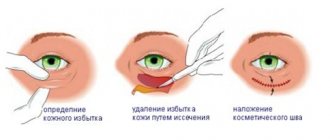Denishchuk Pavel Andreevich, leading plastic surgeon of the ANA-COSMO clinic, National Secretary of the International Association of Aesthetic Plastic Surgeons ISAPS and one of the most highly qualified plastic surgeons in our country has already made a significant contribution to the formation and development of plastic surgery in Ukraine.
Pavel Andreevich has 8 internationally recognized know-how, the invention of which has significantly improved the quality of services provided by plastic surgeons around the world. The doctor’s practical experience is 30 years, but Pavel Andreevich continues to annually attend conferences, symposiums and master classes in various parts of the world to acquire new knowledge. This year, Dr. Denishchuk decided to share his experience with other doctors and opened the “Pavel Denishchuk School of Plastic Surgery.” Pavel Andreevich spoke about the features of training and the expected results of the School’s work to estet-portal.com.
– How did you start your journey in plastic surgery?
– I started my practical activity in general surgery, and for about 10 years I worked as an emergency surgeon, and this is a field of medical activity where decisions about patient treatment have to be made in a matter of seconds. I even had to have heart surgery three times. This is all invaluable experience, and I believe that it is important to come to plastic surgery when the surgeon has the skills to work with various tissues of the body. I have been working in plastic surgery for 20 years, and now I feel that I have accumulated a lot of experience, which I now have the desire and opportunity to pass on to young colleagues.
– What other defects of appearance and their correction will be discussed in your training course?
– I want to train young doctors in the many different types of surgical procedures in plastic surgery: this includes all facial surgeries, including rhinoplasty with an emphasis on complex, closed nose jobs, and breast surgeries, such as breast augmentation or mastopexy, and liposuction, and even some types of intimate plastic surgery. Particular attention is planned to be paid to lipofilling, which to one degree or another appears in many of the above surgical interventions.
A frank conversation with the leading plastic surgeon of Ukraine Pavel Denishchuk
I admit honestly: I have long wanted to personally meet this surgeon and have a long interview with him. And so it happened. This year, the ANA-COSMO clinic, co-founded by Pavel Andreevich Denishchuk, celebrates its 20th anniversary. On this occasion, he agreed to set aside a couple of hours of time and talk about everything that happened in the surgery during this time. And I took advantage of this and asked everything I wanted. Go.
Pavel Andreevich Denishchuk is a leading plastic surgeon with 30 years of experience, candidate of medical sciences, national secretary of the International Association of Plastic Surgeons in Ukraine, academician of the European Academy of Sciences, head of the department of surgery at the ANA-COSMO clinic and founder of the first School of Plastic Surgery in Ukraine. He is also perhaps the only surgeon who runs his own channel on Youtube.
What has changed in plastic surgery in 20 years? What has plastic surgery achieved in Ukraine during this time? What trends and new techniques have emerged, and what can we be proud of?
Every year, many congresses are held around the world, to which Ukraine has already joined - we held three All-Ukrainian training congresses, where I invited world stars of plastic surgery. They gave lectures, operated in the clinic (Ana-Cosmo), and all the surgeons of Ukraine watched this in real time. That is, I can say that global trends are also present in Ukraine.
Plastic surgery and aesthetic medicine are one of the most actively developing areas in medicine. A lot of money is invested here, which allows us to develop and create the most modern developments.
In Ukraine there is a tendency to combine the spheres of cosmetology and medicine. After all, beauty and health are inseparable concepts. A sick body cannot be beautiful. Therefore, before any manipulation, it is necessary to diagnose the patient, treat problems (if any), and then “tuning”. This approach is considered the first and main global trend.
During this period, the field of facial plastic surgery also developed greatly. We have gone through many stages: the period when deep changes in the face were fashionable (even to the point that surgeons reached the periosteum) has passed. They had an effect, but the patient had to wait for it for months (until the swelling and large bruises went away). It was time- and financially costly. Now this is no longer the case. Today, the task of a plastic surgeon is to perform the most effective procedure with minimal trauma and aggressive influences.
And the third trend is that today patients do not want to radically change their face. They only want to erase the marks of age. Therefore, now the main task of a plastic surgeon is to return what was and remove 15-20 years from the face. I invited the leader in facial plastic surgery, Oscar Ramirez (one of the top 100 people who changed the world in terms of technical development), to Ukraine; he applied endoscopic technologies in the field of facial and body plastic surgery. These are the so-called operations “through a wet well”. Our surgeons learned a lot from him.
I can say that anti-aging operations have moved forward by ten years: if previously patients came at the age of 45-55, and I could not offer them anything other than plastic surgery, today there are many alternatives to such aggressive interventions - ligature suspenders (with threads) and without incisions), injections of your own fat cells (restore volumes), and finally, preparations based on hyaluronic acid, Radiesse (filler - “liquid threads”). Also recently introduced to us is a very powerful procedure - a non-surgical facelift using the Ulthera device (the only device registered by the European Medicines Agency). It uses an ultrasonic wave to affect deep tissues, including facial muscles. You can maintain a patient’s excellent condition for ten years without surgery, but, of course, the time will come when you have to operate.
What trends are you seeing in breast surgery?
I can say that now breast augmentation surgeries have taken first place in the world. Previously, liposuction was in first place (removal of one's own fat).
In Ukraine, women used to want bigger breasts, they were interested in round implants, but now almost everyone wants a natural breast shape.
This trend emerged about 4 years ago and is now clearly visible. The only problem is that nothing will happen to the implants (manufacturers now give them a lifetime guarantee), but the breasts can sag, for example. Therefore, you need to take care of her. The main conditions are stable weight and absence of childbirth. In this regard, a woman makes a choice - for example, to give birth first, and then correct the shape of her breasts.
With breast implants, you can safely give birth and breastfeed – this is not contraindicated. But if you gain more than 15 kg, there is a risk that your breasts will sag and you will have to adjust them.
What about rhinoplasty?
As you already understand, there is a trend in all plastic surgery towards minimal impact. In this regard, closed rhinoplasty is popular, where there are no incisions.
By the way, our Ukrainian surgeons travel around the world and share their experience in performing such an operation. For example, I was recently in Japan at the ISAPS Congress, where I gave a presentation on the topic of closed rhinoplasty. We have grown up, and in many respects they are already following our example.
The use of closed technologies in the nasal area is a requirement of modern medicine. It is less painful and traumatic, and recovery after surgery is significantly shorter.
How did people start to feel about plastic surgery? If 20 years ago everyone considered this topic taboo and treated it with fear, then what are things like now?
I wouldn't say that people have started to take it easier. It's still scary for everyone. After all, the patient goes for plastic surgery healthy, and the operations are not performed for vital indications. There are fears, and that's normal. On the contrary, it would be strange if the patient were not afraid. This would worry me more.
During a consultation, I always ask the patient “what is greater – your fears or the desire to change something about yourself?” If there is no reason, I will not operate. If a patient comes to me and wants to change something about himself, but doesn’t know what, or when he has some problems in the family and wants to solve them by changing his appearance, then this is not entirely correct.
Every plastic surgeon is to a certain extent a psychologist: he must understand the true motives of a woman to change something in herself.
Today, plastic surgery has come out of the closed, elite field, and has become closer to the people, because it solves all the problems that concern a person - for example, it corrects birth defects, injuries, scar changes, and so on. And the price is not that expensive.
You immediately see a patient who does not need surgery. Do you refuse them?
Definitely yes. These patients fall into several categories. The first is young girls under 18 who already want to change something about themselves. Even if I see that the nose is “male” and the face is fragile, I will still recommend returning, but after 18 years. Because if we operate earlier, the result may be unpredictable, because the bones are not yet fully formed.
Well, now you can correct your nose with hyaluronic acid. One injection - and there will be no hump or curvature. The only thing is that you will need to repeat the procedure several times. The same goes for the chest.
Firstly, until the age of 18, I provide counseling in the presence of parents. I recommend waiting. If not only the patient, but also the parents clearly insist, then I operate. I refuse when I see that there are health problems. First you need to restore your health, and then we can talk about operations.
The second group that I can refuse are patients who want to solve problems associated with internal torment. These could be family problems: she quarreled with her husband and wants to immediately become younger in order to keep him. This needs to be solved by other methods, but not through plastic surgery. We can return to this issue, but in a calmer and more balanced state of the patient. In this case, you cannot operate - the tissues will not heal well.
The strangest request from a patient.
What surprised me most was the patient who came to me at the age of 72 and stated that she wanted to undergo rejuvenation surgery. I prescribed 10 times more tests for her in the hope that by the time she starts being examined, she will change her mind. And she came two weeks later with a stack of tests, and said, “Doctor, all my tests are good, let’s operate!” When I asked why she needed the operation, she replied, “I have a young friend.” We had the operation, everything was successful, she is happy and looks wonderful (five years have passed since the operation).
A new trend is transplanting your own fat. I heard from one plastic surgeon that fat sometimes does not take root if it is transplanted from the thighs to the face, because the cells have a memory and, by inertia, they begin to grow, as in the previous part of the body. This is true?
Indeed, there are cases when 30% of the fat that we transplant does not survive. But there are certain rules: in order for the maximum number of cells to take root, you need to do special procedures and have special tools that are less damaging to the cells during collection and injection. Often these cells are enriched with plasma. This allows the fat to take root as much as possible. After transplantation, volumes may decrease within 1-1.5 months, and this is normal. But I clearly know that the remaining 60-80% will take root. There can be no talk of any kind of memory.
Fat can be taken from anywhere and transplanted.
There are places where it is best to take it so that it takes root - for example, from the knee area. There are the most stem cells there. I always suggest taking fat from this place. By the way, they are very cool for correcting scars - it resolves them.
That is, this procedure does not have any disadvantages?
No. But there is a nuance here: if a patient wants to enlarge his breasts, then I say that we will not do this in one go. You can increase it by half a size at a time. But as you lose weight, it will go away. It’s another matter when you need a lot of fat (for the chest or buttocks), but there is nowhere to get it. We’ll find them for the face; you don’t need many of them, but not enough for enlargement.
One of the newest technological achievements is operations using endoscopic techniques (when manipulations are done through a small puncture in the skin). Tell me, are they carried out in Ukraine?
Yes, we use these technologies to lift the eyebrows, forehead, and temples. Indeed, two small incisions (1-1.5 cm) are made in the scalp, through which special instruments are inserted that tighten and fix the tissue in a new position.
But as far as I know, the equipment for carrying out such operations is very expensive...
Yes it's true. We have it and in several other clinics in Ukraine. An establishment that wants to be on the level, to be aware of all trends and innovations, will have cool equipment in its arsenal.
Question about mesothreads. You are probably approached by patients who have had or are facing them. How does this affect future lifts and other manipulations?
It is much more difficult to operate on such patients. But for an experienced surgeon this is not a problem. I can sometimes remove some remnants of threads. And non-absorbable threads have to be pulled out. In general, threads have their pros and cons. The advantage is that they provide an immediate effect, but it will not stay with you for life. I also use threads, but I never work with them on the open face area - I only do the temples, around the ear and neck. For young people I use absorbable threads, and for more “severe” cases - non-absorbable ones. Also, if you have a fuller face, then I promise the effect only up to two years, for a thinner face – up to three. Compared to operations, threads provide a more short-term effect. And the operation takes 10-12 years.
What are the most popular operations in Ukraine at the moment?
Each clinic is different. For us, rhinoplasty comes first, breasts come second.
Nowadays it is very popular to remove Bish's lumps. The trend came from Hollywood; before that, no one really knew about the existence of these lumps. Is it possible to perform such an operation at a young age? And are there any contraindications that few people know about?
Age does not matter. If the formed face is really round and has excess volume in the middle third of the face, then it makes sense to remove them. It is clear that at 15-18 years old you can’t even talk about removing lumps, but at 18-25 years old you can. If the patient has simply gained weight, then it is better to lose weight first and then remove them. After all, for most people, these lumps can decrease in volume on their own. There are specially developed tests to determine these volumes.
What negative consequences after their removal can occur with age?
They tend to expose the cheekbones, which creates the appearance of unnecessary lines. This is because the tissue was taller before removal. The area near the cheekbones will still need to be corrected, but using different methods. Sometimes I don’t remove Bisha, but raise them higher. This is more difficult, but everything will remain with you: you will get volume in the cheekbone area, and it creates the depressions that everyone so strives for.
There will be no regressive sagging of the tissues, but age will still take its toll - the tissues will sag, but not so progressively.
There is another super fashionable, especially in the West, lip surgery – bullhorn. Many people want to enlarge their lips this way. What do you think of her?
You can independently determine whether you have indications for such an operation. To do this, you need to stand in front of a mirror and open your mouth. If your upper teeth are visible, then this operation is not indicated for you. If they are not visible, then we can already talk about something. But with age, unfortunately, the tissues in the area of the upper lip relax, it droops and becomes thinner, which is why almost everyone develops symptoms.
In no case should you look at bullhorn from the point of view of lip enlargement. These are completely different operations.
If you want to tuck your upper lip a little, then this is not about bullhorn.
Is Altera's ultrasonic skin lifting, which you talked about at the beginning of our conversation, really a direct competitor to plastic surgery?
Yes. It acts on three levels - skin, subcutaneous fat and muscles. Depending on the attachment and the task at hand, a lot can be solved. One procedure per year is enough for the effect to be long-lasting. The procedure is relatively painful, but it solves many problems - it tightens, removes bags under the eyes, “rejuvenates” the neck and décolleté area.
By the way, this is the only procedure that solves the problem of wrinkles in the décolleté area.
We have a special xenon anesthesia, which the body perceives as a therapeutic sleep. It does not affect the body in any way: the patient just sleeps, and we do our job. Thanks to this, we can operate even on elderly patients without fear for their health.
We can be proud that now we can become more beautiful and younger without resorting to aggressive techniques and radical surgeries?
Definitely. Globalization is also reflected in the field of medicine, so all the trends, new tendencies and directions that appear come to Ukraine. Our surgeons go to conferences, learn from experience and share their own. Fortunately, women in Ukraine can receive good aesthetic and surgical care.
You also need to understand that there are clear recommendations for conducting operations. The surgeon must follow them. He cannot apply the same technique to all patients, but must act based on the situation he sees and then apply or adapt the technique. I do not exclude that it may be necessary to make changes to the protocol in order to obtain an optimal result.
If after surgery the patient is not satisfied with the result, whose side is the law – the doctor (clinic) or the patient?
If there are some points that the doctor underestimated, and through his fault the operation did not go as desired, then the surgeon’s task is to do everything possible to correct the situation. Redo it, invite a colleague who, perhaps, knows this or that topic better, and somehow correct it. And, of course, this must be carried out at the doctor’s expense.
There are also situations that could not be predicted - for example, internal inflammation, or when the patient hid some chronic diseases. Then we also need to correct it, but decide among ourselves at whose expense this will be done. There is no need to bring everything to court. As a rule, in Ukraine everything is resolved pre-trial, and so that the patient receives a result with minimal psychological trauma.
How to choose the right clinic and the right doctor?
First, look at how old the clinic is. Secondly, on the experience of the surgeon who will operate. And finally, find out if the clinic uses modern technology and equipment. There are many great surgeons and clinics in Ukraine who keep their finger on the pulse of technology. It is important for the patient to understand: if he wants to save money, he must know that this is a risk. You will only win in terms of money. But as a rule, when it is necessary to undergo a serious operation, everyone approaches the choice of a doctor responsibly.
What do you predict will happen to the plastic surgery industry in five years?
I think that the level of education will increase. Scientific technologies do not stand still, so methods will definitely appear that will solve problems with the most minimal intervention. Plus, rejuvenation with stem cells and the use of cellular technologies will become more common phenomena. Its development will advance much further.






